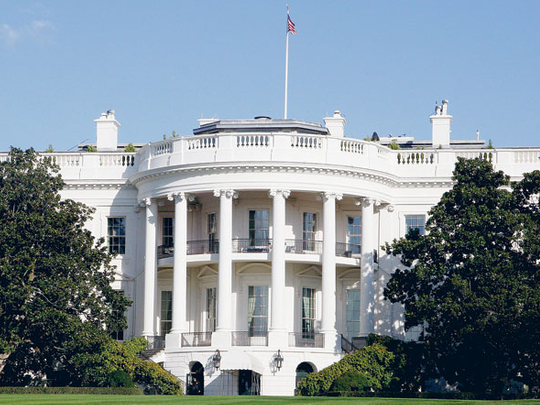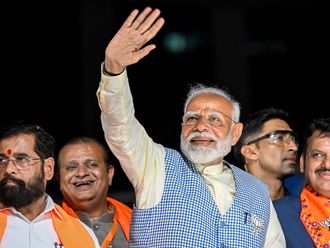
Back when he was chairman of the US Joint Chiefs of Staff, Colin Powell is reported to have remarked that no one wants America to be the world’s policeman, but guess who everyone calls whenever they need a cop? Regardless of whether or not Powell actually said that, more than twenty years later it remains true in its essentials. It also explains why America and American power are not going away any time soon.
In the quarter of a century since the fall of the Berlin Wall and the collapse of the Soviet Union the US has enjoyed a degree of global influence that is arguably unrivalled in human history. That hegemony — what once led a French foreign minister to refer to America as a “hyperpower” (it wasn’t meant as a compliment) — is now being challenged on many sides.
Russia is reasserting itself in the areas that used to make up the Soviet Union and has, in recent weeks, moved into the Middle East, an area from which its armed forces have largely been absent for decades. China is building up a military that it hopes will eventually match the economic clout it has acquired over the last decade and is daring the US to challenge it in the South China Sea. Regional powers from India to South Africa to Brazil are becoming increasingly important economically and the European Union, for all of its struggles over the last two years, continues to grow as a force to be reckoned with both politically and economically.
America is now learning how to operate in a multi-polar world, but even if its economic power and political influence are no longer unrivalled that does not mean they are diminished in the ways that some other countries might hope for and some politicians in Washington fear.
As data compiled by the Stockholm International Peace Research Institute, a think tank, show, last year the US spent more on its military than the defence budgets of China, Russia, Saudi Arabia, France, the UK, India and Germany combined. Stop for a second and think about that. Regardless of whether you think that is a good or a bad thing it is, by any measure, extraordinary.
It leads, in turn, to a more subtle, but arguably more important, point: reach.
For all the talk of rising Chinese power, as The Economist recently noted, China’s entire announced defence budget is about what the US spends just on its navy. The result is that Washington can face down China in the oceans of South-East Asia and deploy troops in several parts of Africa and maintain a significant presence in Europe while fighting in both the Middle East and Afghanistan and still be prepared to deploy to Latin America on a few hours notice.
Ups and downs
Again, you don’t need to approve of this to be impressed by it, and no one with any credibility is arguing that this reach is going to be challenged by any other power any time soon.
Military strength, however, is not the only part of this equation.
The world’s most widely traded commodity — oil — is bought and sold exclusively in US dollars. Various countries have grumbled and threatened to change this for decades, but none have and in the immediate future none will — because the world’s financial markets prefer dollars to any other currency on offer.
The dollar remains the global reserve currency. That might change someday, but it is not going to happen in the next five to ten years. In the meantime, it is to the dollar that economies in crisis default as a first step toward putting their economic houses in order.
For all its ups and downs — and despite the rise of challengers like the Euro — the US dollar remains the final resort of countries looking for a safe haven. In the early 1990s Lebanon, wracked by war and hyper-inflation, effectively (though never officially) began using the US dollar as its currency. American money provided a degree of stability and predictability at a moment when the country sorely needed it. Lebanon has recovered, but its view of the dollar as a safe haven is still widely shared.
There are many other things one could mention: the soft, but all-pervasive, power of Hollywood; the global reach of America’s pop music industry. America’s leading role in computers and technology (one may do great things anywhere in the world, but to get truly rich one has to make an idea succeed in Silicon Valley).
For better or worse America has even managed to make its legal system, especially its banking and wire fraud laws, close to universally applicable — as various foreign banks and Fifa have learnt the hard way. Once again, I am not saying one needs approve of any of this. But it is the reality with which we all live, for now and for the foreseeable future.
Things change. Empires rise and fall. Power ebbs and flows. None of this is really open for debate. It is one thing, however, to acknowledge this truism of history, and another to assume that because all things must pass, America’s time has passed.
Gordon Robison, a longtime Middle East journalist and US political analyst, teaches political science at the University of Vermont.










